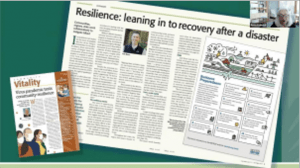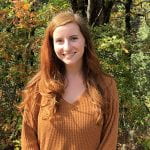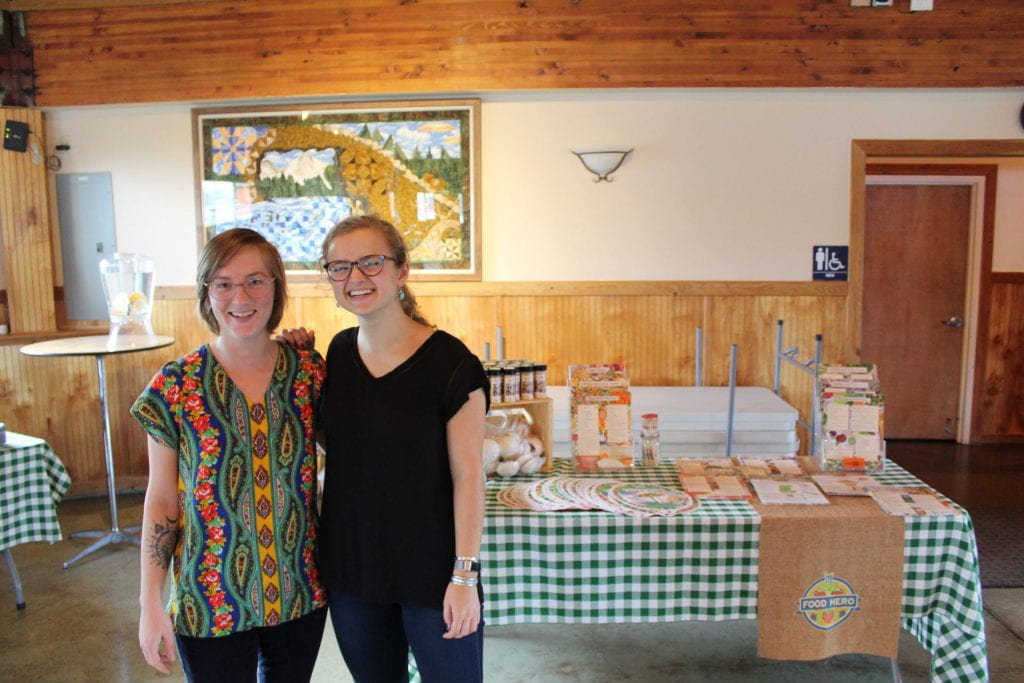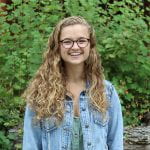By Jane Allen, Project Coordinator, Mid-Columbia Economic Development District
We all knew when signing up for the 20-21 RARE term of service, that this year would be different. As the COVID-19 pandemic continues to rage on in our country, it is hard to count all the ways in which our lives have changed since that virus first presented itself in the US and lockdowns began in mid-March of last year. For many RAREs, what is normally a service marked by in-person community development and fostering connections, this service year has been mostly serving behind a screen — not unlike many other people around the world who are navigating a Covid-ridden landscape. But what do you do when times are tough, and conditions change? You adjust, recalibrate, and move forward with the new set of circumstances.
One of the first projects I was tasked with as an incoming RARE working for the Mid-Columbia Economic Development District, was to coordinate their annual Columbia Gorge Economic Symposium. As someone who has had little experience with event planning, this was a daunting task. For the first time ever, this event would be held virtually, and not surprisingly, the main focus would be recent impacts to our economy and how we, as a region, begin to move forward and recover from this crisis.

Diving into this work was a great opportunity for me to learn about the new community I had just moved to. I found ways to build on the partnerships that were already in place in the Columbia Gorge, inviting industry leaders to speak about their experiences, how they pivoted in the face of uncertainty, and what their hopes are for the future. I am happy to say that the event was a success — we had over 200 people register, and many commented that they appreciated the discussions centered around resilience, recovery, and what the future holds for their communities.
This event solidified one of the most important lessons my service has taught me thus far — that getting things done in rural Oregon requires extensive collaboration and relationships that are built on trust and communication. I have seen it as I have joined the monthly calls of our economic resilience team — a cohort of stakeholders representing all facets of life in the Gorge, from health care professionals, teachers, workforce agencies, tourism representatives, tribal members, and more — who have been gathering since early March to meet this moment and share vital information back to their communities. I have seen it as I have listened to community members in Wasco County share the projects they have been working on, sometimes for years, to enhance their towns, and the relentless effort it takes to finally break ground. And I have seen it as MCEDD helped local counties develop a grant program to disperse over $1.5 million in funds to small businesses just weeks before the funds were set to expire. This work cannot occur without the strong foundation of partnerships built and coalitions formed, which have been critical for the Gorge region to navigate the COVID-19 crisis. I feel lucky to have been witness to this, and to play a small role in ensuring those relationships are strong, vibrant, and sustainable.
 About the author, Jane Allen: Jane majored in Environmental Studies and Geography at the University of Northern Colorado and got her Masters in Climate Change & Society at North Carolina State University. Having lived all over the country, Jane has seen the impacts of a changing climate coast to coast and wants to help communities be more resilient to these changes. In the future, Jane hopes to work on natural hazards planning and climate adaptation and is excited to apply her skills to economic development in rural Oregon. In her free time you will most likely find her exploring the outdoors with her husky in tow, listening to live music, or hanging out at a local brewery.
About the author, Jane Allen: Jane majored in Environmental Studies and Geography at the University of Northern Colorado and got her Masters in Climate Change & Society at North Carolina State University. Having lived all over the country, Jane has seen the impacts of a changing climate coast to coast and wants to help communities be more resilient to these changes. In the future, Jane hopes to work on natural hazards planning and climate adaptation and is excited to apply her skills to economic development in rural Oregon. In her free time you will most likely find her exploring the outdoors with her husky in tow, listening to live music, or hanging out at a local brewery.


